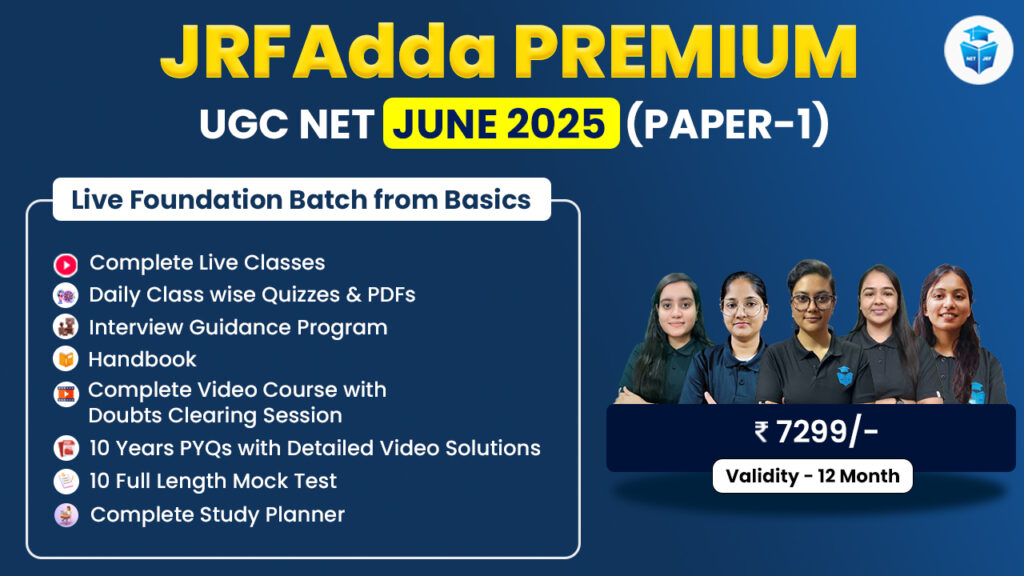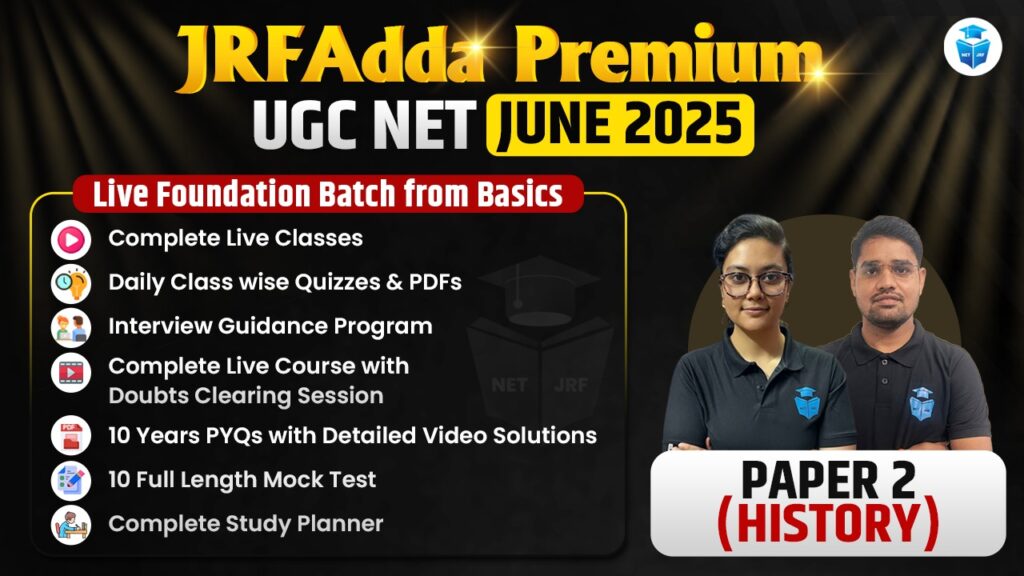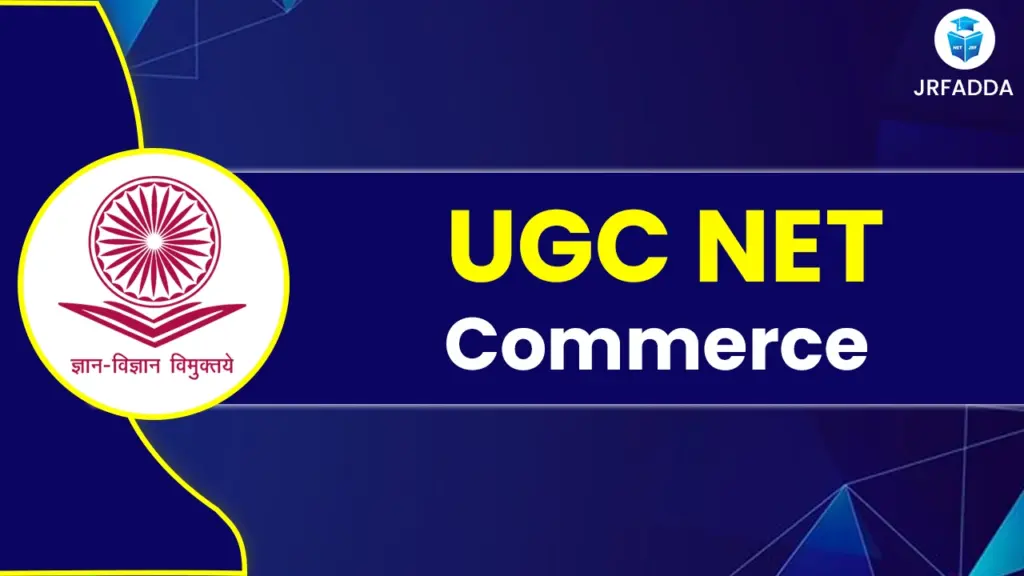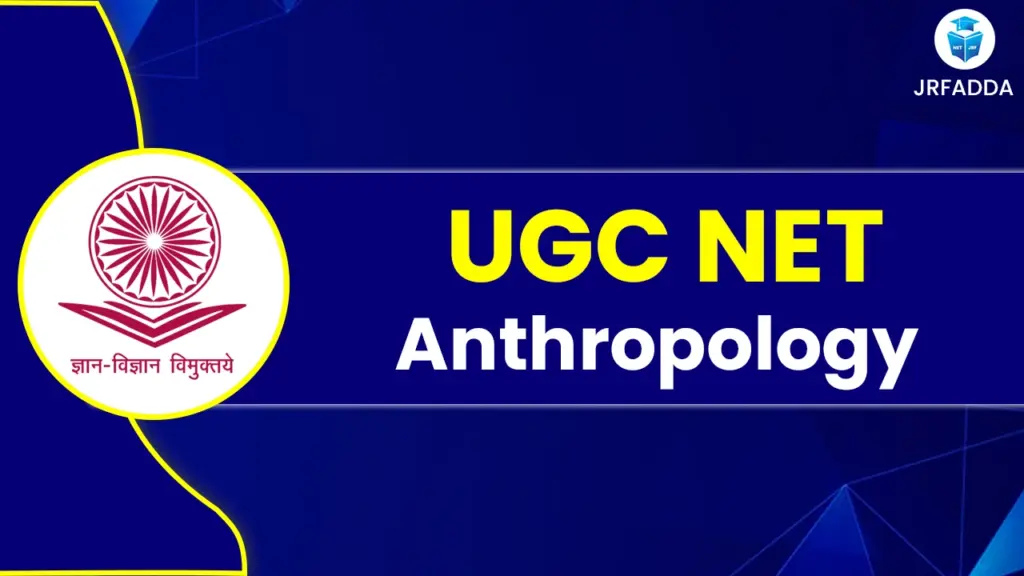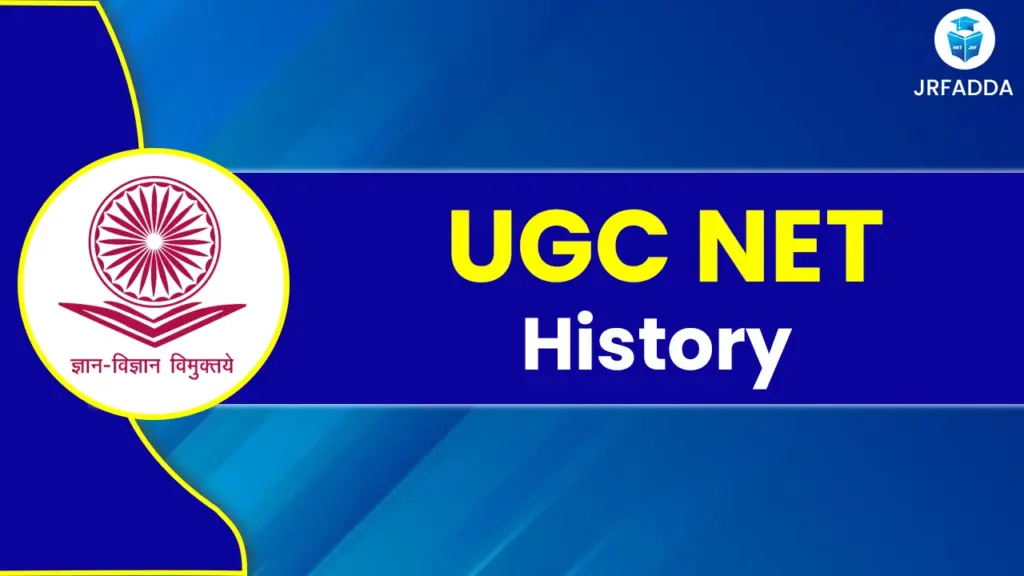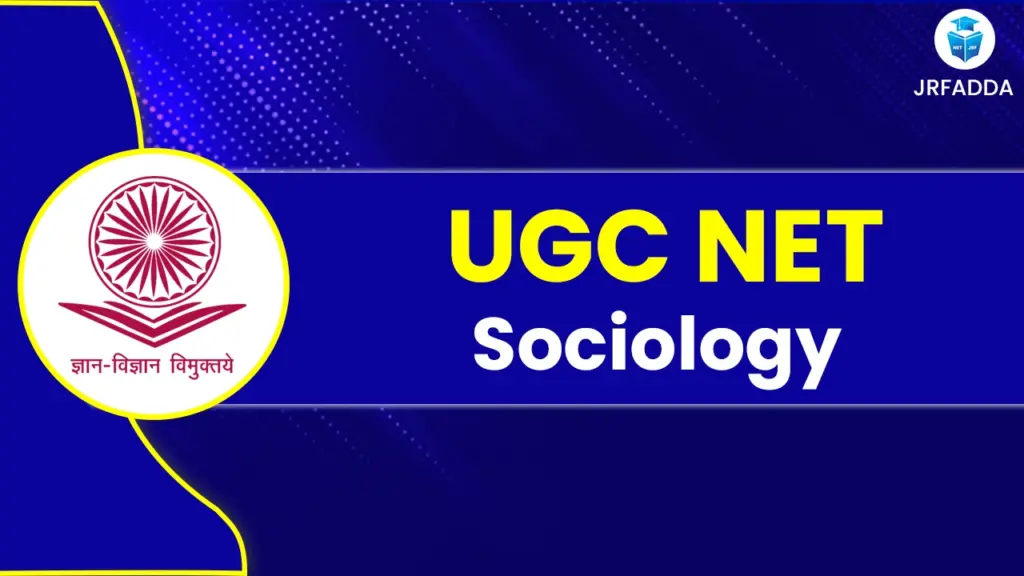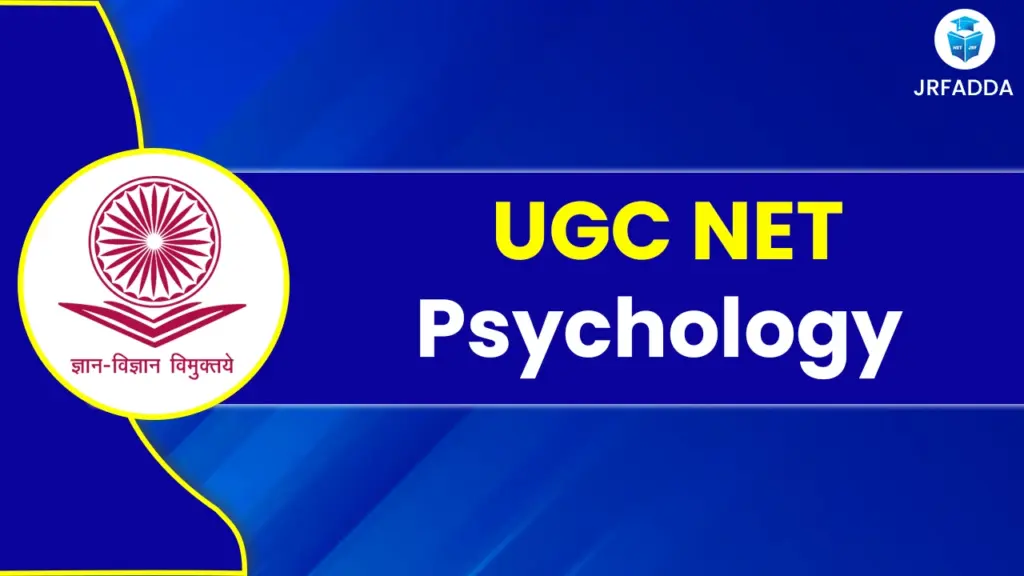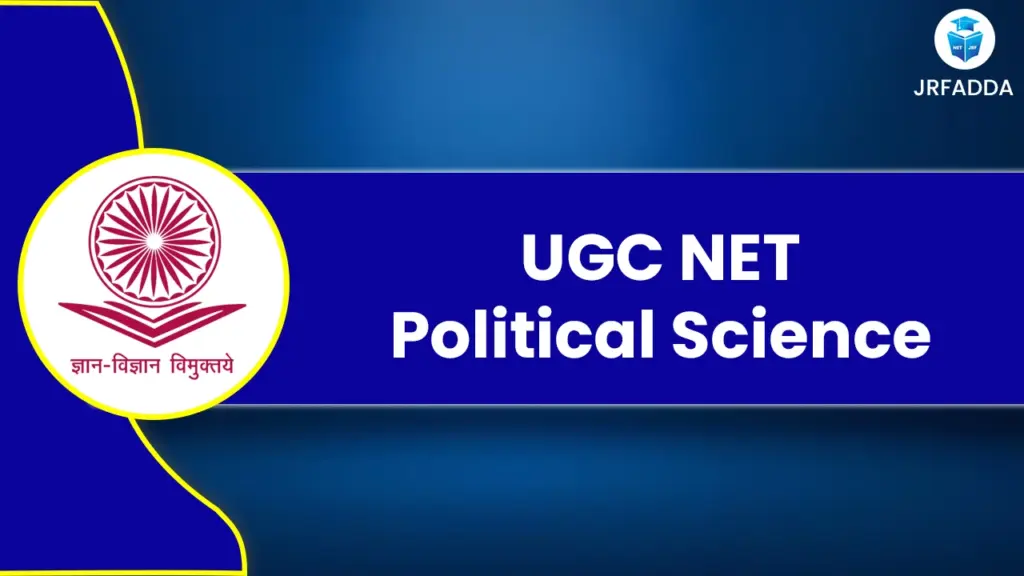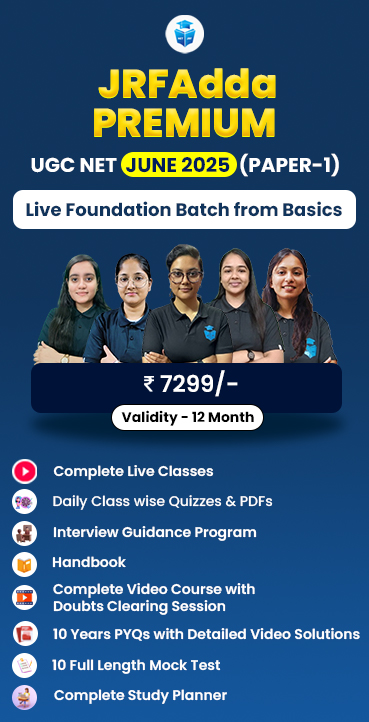The Meghalaya TET 2025 exam or Meghalaya Teacher Eligibility Test (MTET) is a state-level examination conducted by the Directorate of Educational Research and Training (DERT), Meghalaya for the aspiring teaching candidates for the primary classes and upper primary classes in the entire Meghalaya State. The government has released the Meghalaya TET 2025 official notification on 29th January 2025 in which key details for the examination such as Meghalaya TET exam date, Meghalaya TET exam syllabus, exam pattern and all related information has been mentioned. The Meghalaya Application Form 2025 filling up has been started from 07th February, 2025 at 01:00 PM to 24th February, 2025 at 05:00 PM and the date of exam will be 25th April, 2025.
Note: PwD candidates are exempted from paying Meghalaya TET Examination Fees
Meghalaya TET 2025 Important Highlights
The exam of the Meghalaya TET is conducted by the state government of Meghalaya to recruit teachers for the lower primary (Classes I-V) and the upper primary (Classes VI-VIII). The eligibility criteria for both classes are different as for upper primary classes candidates need to complete the B.Ed and for lower primary classes candidates need to complete a Diploma in Elementary Education (D.El.Ed) or Bachelor of Elementary Education (B.El.Ed). Here are the key aspects of the exam that you should know:| Exam | Details |
| Name of Exam | Meghalaya Teacher Eligibility Test (MTET) |
| Conducted By | Directorate of Educational Research and Training (DERT), Meghalaya |
| Exam Level | State |
| Frequency of Exam | Once in a year |
| Number of Papers |
|
| Duration of Exam | 150 Minutes |
| Exam Pattern | Multiple Choice Questions (MCQs) |
| Exam Mode | Offline |
| Language of Exam | English & Khasi/Garo |
| Purpose of Exam | To recruit Primary and Upper Primary teachers in Meghalaya schools |
| Official Website | http://megeducation.gov.in/ or https://dert.megeducation.gov.in/ |
| Helpline | 0364-2224201 |
Meghalaya TET 2025 Notification
The Meghalaya TET 2025 notifications and details were released on 29th January 2025. This official notification is important as all the important information about examination and registration are mentioned. Students are advised to go through the official website regularly and stay informed of all related information. Aspirants can review and check the previous year’s exam pattern and syllabus – here a few details that you should know:| Exam | Dates |
| Notification | 29th January 2025 |
| Online Application Process Start Date | 07th February,2025 at 01:00 PM |
| Last Date to Apply Online | 24th February,202l at 05:00 PM |
| Admit Card Release Date | To be Announced |
| Meghalaya TET 2025 Exam Date | 25th April, 2025 |
| Answer Key | To be Announced |
| Result Declaration | To be Announced |
Check the Meghalaya TET 2025 Official Notification
Meghalaya TET 2025 Eligibility Criteria
The candidates who are applying for the Meghalaya TET 2025, should know about the eligibility to and from. The criteria is mainly defined by the Meghalaya Board of School Education. This exam is mainly divided into two sections: for lower primary classes and for upper primary classes. The Meghalaya TET Eligibility Criteria 2025 is different for both of the streams. Here are the eligibility criteria that you should know:Meghalaya TET 2025 General Eligibility
| Candidate | Details |
| Nationality | Indian |
| Domicile | Must be a resident of Meghalaya |
| Age Limit | There shall be no age limit for candidates applying and appearing for MTET. |
| Number of Attempts | No restriction on the number of attempts |
Meghalaya TET 2025 Eligibility Criteria for Paper 1 (Classes 1-5)
The candidates appearing to the lower primary classes I to V exam should have to adhere the following details:- Candidates can have Higher Secondary (or its equivalent) with at least 50% marks and have a 2-Year Diploma in Elementary Education (D.El.Ed.)
- Candidates can have Higher Secondary (or its equivalent) with at least 45% marks and 2-Year Diploma in Elementary Education ((D.El.Ed.), in accordance with the NCTE Regulations, 2002.
- Candidates can have Higher Secondary (or its equivalent) with at least 50% marks and 4-Year Bachelor of Elementary Education (B.El.Ed)
- Candidates can have Higher Secondary (or its equivalent) with at least 50% marks and 2-Year Diploma in Special Education
- Candidates can have Graduation and 2-Year Diploma in Elementary Education (D.El.Ed.)
Meghalaya TET 2025 Eligibility Criteria for Paper 2 (Classes 6-8)
The candidates who are applying for the upper primary for classes 6-8 need to be lie in the following criteria:- Candidates can have Graduation and 2-year Diploma in Elementary Education (D.El.Ed.)
- Candidates can have At least 50% marks either in Graduation or in Post-Graduation Bachelor in Education (B.Ed)
- Candidates can have Graduation with at least 45% and 1-Year Bachelor in Education (B.Ed), in accordance with NCTE Regulations issued from time to time in this regard.
- Candidates can have Higher Secondary (or its equivalent) with at least 50% marks and 4-Year Bachelor in Elementary Education (B.El.Ed)
- Candidates can have Higher Secondary (or its equivalent) with at least 50% marks and 4 year B.A/B.Sc.Ed or B.A. Ed./ B.Sc. Ed.
- Candidates can have Graduation with at least 50% marks and 1-Year B.Ed. (Special Education)
Meghalaya TET 2025 Relaxation in Eligibility
The candidates belonging to the SC/ST/OBC/Differently-Abled categories can get a minimum relaxation of 5% in qualifying marks.Meghalaya TET 2025 Important Notes
- The candidates who appear in the final year of the exam are eligible to apply provisionally.
- The final eligibility is subjected to the verification of documents while selecting the candidate.
Meghalaya TET 2025 Documents Required
A candidate should have to keep the following documents handy:- Domicile certificate
- Educational qualification mark sheets and certificates
- Caste category certificate and government issued ID proof
Meghalaya TET 2025 Vacancy Details
The Meghalaya TET 2025 serves as a qualifying examination for aspiring candidates. This Meghalaya TET exam evaluates the candidates’ eligibility for teaching positions rather than recruiting for specific vacancies. To get recruited Meghalaya government will release the number of vacancies for Level I (Classes 1-5) and Level II (Classes 6-8). Using Meghalaya TET certificate candidates can apply for those teaching roles in government, private, and public schools within Meghalaya. As per the earlier year’s records, the expected vacancies for this year might be 2100 posts for primary, secondary, and graduated teachers.Meghalaya TET 2025 Exam Application Form
The Meghalaya TET 2025 exam is a state level exam conducted by the Directorate of Educational Research and Training (DERT), Meghalaya to evaluate the candidate eligibility for teaching positions in primary (Classes I–V) and upper primary (Classes VI–VIII) levels in government and private schools across the state. The Meghalaya TET 2025 exam application process has been officially announced and started from 07th February, 2025 at 01:00 PM allowing aspiring candidates to submit their applications within the specified dates. The entire application process is conducted online. Aspirants must carefully follow the guidelines and eligibility criteria to complete the Meghalaya TET application successfully.Meghalaya TET 2025 Exam Registration Process
Aspiring Candidates who wish to appear in Meghalaya TET 2025 exam must follow the step-by-step registration process released by the Directorate of Educational Research and Training (DERT), Meghalaya. Below is the step by step process for the aspiring candidates. Step 1: Visit the official website of the Meghalaya Board of School Education (MBOSE) or the Directorate of Educational Research and Training (DERT), Meghalaya. Step 2: On the homepage, Search and Click on “Meghalaya TET 2025 Registration” Link. Step 3: Click on the “New Registration” button Step 4: Enter the personal details such as name, email ID, mobile number, and create a password by verifying the OTP sent to the registered mobile number or email. Step 5: Use the Registration ID and Password to log in Step 6: Fill in the Meghalaya TET 2025 application form with personal and educational details such as Name, Date of Birth, Gender, Address, etc., Educational Qualification Details, Choice of Exam Paper (Paper I for Classes I-V or Paper II for Classes VI-VIII or both) and Preferred Examination Center. Step 7: Upload the scanned photocopies of required documents such as Passport-size photograph, Signature, Educational certificates, and Category certificate (if applicable). Step 8: Pay the Meghalaya TET 2025 application fee through mentioned online payment methods such as debit/credit card, net banking, or UPI. The application fee varies according to the category. Step 9: Review and Submit the Meghalaya TET 2025 Application form.Meghalaya TET 2025 Exam Application Fee
According to the Meghalaya TET 2025 official notification released by the Directorate of Educational Research and Training (DERT), Meghalaya, the Meghalaya TET 2025 application fees are as mentioned below:| Category | Fees | Paper |
| General | Rs. 800/- | Paper I or Paper II |
| General | Rs. 1600/- | Both Papers |
| SC/ST/OBC/OST/OSC | Rs. 400/- | Paper I or Paper II |
| SC/ST/OBC/OST/OSC | Rs. 800/- | Both Papers |
Meghalaya TET 2025 Exam Syllabus
The Meghalaya TET 2025 exam is mandatory for aspiring candidates to become teachers in government and private schools for Classes I-V (Lower Primary Level) and Classes VI-VIII (Upper Primary Level) in Meghalaya. The Meghalaya TET 2025 exam syllabus is designed to check the teaching aptitude, subject knowledge, and pedagogical skills of candidates. Below is the detailed syllabus for both the primary and upper primary level classes:Meghalaya TET 2025 Exam Paper 1 (Primary level I-V) Syllabus
- Child Development and Pedagogy
- Understanding Child Development which includes Concept and nature of development.
- Different Stages of development: Infancy to childhood.
- Factors that affect child development in socio-cultural contexts.
- Aspects of Child Development including Physical and motor development, Cognitive development such as Piaget’s stages of development, Social and emotional development, Moral development such as Kohlberg’s theory & Language and communication development.
- Gender Development which includes Concept of gender and sex.
- Gender socialization during childhood.
- Different Issues of gender inequality: Gender bias and inequities in educational practices.
- Teacher responsibility in promoting gender equality and sensitivity.
- Methods of Child Study includes Naturalistic observation and participant observation, Case study and anecdotal records, Reflective journals and student portfolios & Questionnaires and unstructured interviews.
- Inclusive Education and CWSN Concepts and meaning of inclusive education with difference between integrated and inclusive education.
- Understanding disability including Types of disabilities and challenges faced by learners.
- Understanding exceptional learners such as Gifted, talented, creative, slow learners and underachievers.
- Role of the teacher in creating inclusive classrooms and supporting children with special needs (CWSN).
- Learning and Pedagogy Concept of teaching and learning including Factors affecting learning.
- Basic learning styles: Audio, visual and tactile/kinesthetic learners.
- How children learn: Observation, inquiry and exploration.
- Teaching skills and classroom activities.
- Steps in lesson planning: Pre-teaching, transaction of lessons and post-teaching.
- Assessment of Students’ Performance Assessment for, as and of learning including Types of assessment: Formative, summative and diagnostic assessment.
- School-Based Assessment (SBA): Characteristics, features and importance with Techniques and tools of SBA: Activity-based assessments, observation, rubrics and achievement tests.
- English
- Oral Language Development which includes Listening skills such as Comprehension of instructions, classroom discussions, poetry recitation, newspaper reading, stories, films and note-taking.
- Speaking skills: Fluency in expressing, summarizing, analysing, critiquing and opinion-building.
- Reading Skills includes understanding: Comprehending various text types, including stories, poems, plays, riddles, jokes, advertisements and instructions for games by using resources such as Dictionary, encyclopaedia, internet, newspapers, magazines.
- Writing Skills includes a sense of purpose: Crafting meaningful written forms such as letters, messages, notices, posters, slogans and labelling diagrams/pictures.
- Reading unseen passages: Interpreting prose or poetry for comprehension and inference.
- Grammar and composition: Assessing the ability to apply grammatical rules and compose written pieces effectively.
- Language II (Any one from Khasi/Garo/Hindi/Assamese/Bengali/Nepali)
- Language Skills includes Listening, speaking, reading, and writing competencies in the chosen language.
- Literature and Textual Analysis includes Understanding and interpreting literary works relevant to the language.
- Grammar and Usage that includes the teaching of grammatical structures and their practical applications.
- How to add cultural elements in the classroom teaching to enhance language learning to students.
- Effective methods and resources for teaching the chosen language in the classroom.
- Mathematics
- Number Systems includes Understanding and teaching whole numbers, fractions, and decimals.
- Arithmetic Operations includes Techniques for teaching addition, subtraction, multiplication, and division.
- Basics of Geometry that includes concepts of shapes, spatial understanding, and measurement.
- Basic Introduction of Data Handling includes sorting, classification, and simple data representation..
- Environmental Studies (EVS)
- Fundamental principles of EVS, including biodiversity, pollution, and conservation.
- Meghalaya’s Environment which includes Study of the state’s physical features, climate, vegetation, and wildlife.
- Relationship of EVS with Science and Social Science
- Human-Environment Interaction includes Understanding how communities interact with and impact their environment.
- Teaching Strategies includes Activity-based learning, field trips, and project work to engage students in EVS.
- Natural resources include Air, water, soil and their conservation.
- Plants and animals with their significance in the environment.
- Food and its types and importance of healthy food.
- Biodiversity and its Concepts, causes of loss and conservation.
- Pollution and its Causes, types (air, water, soil, industrial) and sustainable practices.
- Assessment in EVS includes Tools and techniques for evaluating students’ understanding of environmental concepts.
Meghalaya TET 2025 Exam Paper II (Primary level VI-VIII) Syllabus
- Child Development and Pedagogy
- Understanding Child Development with its Meaning and concept of growth and development.
- Developmental characteristics of childhood and adolescence.
- Development of children in socio-cultural contexts and its relationship to learning.
- Different Factors influencing development.
- Aspects of Development including Physical and motor development, Cognitive development (Piaget’s theory of cognitive development), Socio-emotional development, Moral development (Kohlberg’s theory of moral development).
- Gender Development with Difference between gender and sex and Stages of gender development.
- Inclusive Education and Children with Special Needs (CWSN) with Concepts and meaning of inclusive education.
- Difference between integrated and inclusive education.
- Understanding disabilities and types of disabilities.
- Barriers and challenges to inclusive education.
- Learning and Pedagogy with Concept of learning and factors affecting learning.
- Steps in lesson preparation: Pre-teaching, teaching transactions, post-teaching (including lesson planning).
- Use of learning resources and teaching-learning materials (TLMs).
- Assessment of Students’ Performance with Concepts of assessment:
- English
- Functional Aspects of Language with Purpose and meaningful use of language.
- Social context of language: Influence of mother tongue, multilingual classrooms and the status of English in India.
- Oral Language Development with Strategies for oral language development: Activities for developing extempore speech.
- Communicative Competence in children -roleplay, recitation, storytelling, debates, extempore speech, etc
- Developmental stages of reading and writing.
- Reading Skills including Types of reading: Reading across the curriculum (content-based and narrative texts).
- Role of schema in reading comprehension.
- Reading beyond textbooks: Encouraging critical engagement with diverse texts.
- Writing Skills as a process and purpose-driven activity: Emphasis on audience, purpose and process over product.
- Connecting reading and writing to reinforce comprehension and creativity.
- Assessment in Language Learning with Process-oriented assessment in constructivist classrooms: Evaluating content over form and structure.
- Use of portfolios and reflective journals for ongoing evaluation.
- Reflective practices with Writing reports, maintaining student profiles and analyzing classroom challenges.
- Language Comprehension and Grammar including Reading unseen passages (prose/poetry) for comprehension and inference.
- Composition and grammar: Application of grammatical rules in writing and speaking.
- Language II (Any one from Khasi/Garo/Hindi/Assamese/Bengali/Nepali)
- Candidates should have Listening, speaking, reading, and writing ability from the language chosen.
- Literature and Textual Analysis which includes the Understanding and clarification of literary works relevant to the language.
- Grammar and Usage that includes the teaching of grammatical structures and their practical applications.
- How to add cultural elements in the classroom teaching to enhance language learning to students.
- Effective methods and resources for teaching the chosen language in the classroom.
- Mathematics
- Building blocks of mathematics : Definitions, axioms, conjectures, proofs and counterexamples.
- Mathematics outside the classroom: Relating mathematical concepts to daily life.
- Teaching Methods in Mathematics includes Inductive-Deductive, Analysis-Synthesis, Problem-solving, Project-based learning and Discovery methods.
- ICT tools and resources: Learning apps, software and interactive tools for teaching mathematics.
- Community Mathematics: Using local resources and collaborative programs to enhance learning.
- Assessment techniques: Formative and summative assessments and tools for evaluating mathematical understanding and application.
- Number Systems including Natural numbers, whole numbers, integers and rational numbers.
- Prime and composite numbers, divisibility, factors and multiples.
- LCM and HCF and their applications.
- Concepts of ratio and proportion and their applications.
- Introduction to algebra: Variables, coefficients and constants.
- Linear equations and algebraic identities e.g., (a ± b)2, (a2-b2) and their applications.
- Geometry
- Lines, angles, triangles and their properties.
- Symmetry: Reflection, line of symmetry and symmetrical figures.
- Area and perimeter of triangles, rectangles, parallelograms and circles, including applications.
- Statistics and Data Handling
- Measures of central tendency: Mean, median and mode.
- Bar graphs: Reading, interpreting and representing data graphically.
- Science
- Scientific knowledge and inquiry.
- Scientific methods and attitudes.
- Learning Objectives Aims and objectives of teaching Science as outlined in NCF 2005.
- Assessment Types, purpose, tools and techniques of assessment in Science.
- Approaches to Teaching-Learning Observation, experiment, hands-on activities and concept mapping.
- Application of inquiry-based and experiential learning methods.
- Concept of Motion in different views with principles of motion.
- Concepts and applications of Heat and Temperature.
- Light and Electricity: Understanding basic principles and real-life implications of Light & Electricity.
- Properties and applications of solids, liquids and gases.
- Identification, properties and applications of acid, bases and salts.
- Properties and importance of water & air in daily life.
- Structure and functions of Plant and Animal Cells
- Nutrition, respiration, locomotion and movement in plants and animals.
- Social Studies
- Concept of Social Science.
- Differences between Social Science and Science.
- Aims of Social Science Education.
- Approaches in Social Sciences: Systematic and Regional Approach & Traditional and Modern Approach.
- Reconstruction of History through evidence.
- Sources of History.
- Earliest civilizations.
- The Mughal Empire in India.
- Indian National Movements and Contributions of Tirot Sing, Kiang Nangbah and Pa Togan Sangma in the Indian National Movement.
- Partition, Transfer of Power and Making of the Indian constitution.
- Hill State Movement in Meghalaya.
- The Indian Constitution: Preamble and Salient Features of Indian Constitution.
- Organs of the Government.
- Forms of Government: Democracy (Direct, Indirect and Representative Democracy) and Dictatorship.
- Structure of Government: Unitary and Federal, Parliamentary and Presidential Government.
- Concept of Nation and State.
- Social Structure and Social Stratification.
- Community and Socio-Political groups.
- Government for Development.
- Understanding Media.
- Map: Features and Types.
- The Earth and its Movements.
- Rocks and Minerals.
- Weather and Climate.
- Drainage system.
- Oceans Currents.
- Physical features of India & Meghalaya.
- Resources of India (Land and soil, Water, Forest, Minerals).
- Agriculture of India & Meghalaya.
- Manufacturing Industries of India.
- Transport and Communication of India.
- Demography of India and Meghalaya.
- Sectors of the Indian Economy.
- Understanding Banking; Types of Accounts.
- Consumer Right and Protection.
Meghalaya TET Exam Pattern 2025
The exam of the Meghalaya Teacher Eligibility is mainly divided into two levels with paper 1 and paper 2. If you want to crack one, candidates should thoroughly know the exam pattern. Here is everything that candidates need to know about Meghalaya TET Exam 2025:Meghalaya TET 2025 Paper I Exam Pattern for Classes I-V
| Subject | Questions | Marks |
| Child Development and Pedagogy | 30 | 30 |
| Language I (Khasi/Garo/Assamese/Bengali/Hindi/Nepali) | 30 | 30 |
| Language II (English) | 30 | 30 |
| Mathematics | 30 | 30 |
| Environmental Studies | 30 | 30 |
Meghalaya TET 2025 Paper II Exam Pattern for Classes VI-VIII
| Subject | Questions | Marks |
| Child Development and Pedagogy (Compulsory) | 30 | 30 |
| Language I (Compulsory) (Khasi/Garo/Assamese/Bengali/ Hindi/Nepali/ Urdu/Mizo) | 30 | 30 |
| Language II- Compulsory (English) | 30 | 30 |
| (a) Mathematics & Science OR (b) Social Science | 60 | 60 |
Meghalaya TET 2025 Exam Admit Card
The Meghalaya TET 2025 exam is scheduled for April 25, 2025 by the Directorate of Educational Research and Training (DERT), Meghalaya. Aspiring candidates who have successfully registered for the Meghalaya TET exam can easily download their admit card from the official website prior to the exam date.Steps to download Meghalaya TET 2025 Exam Admit Card
Step 1: Visit the official website: https://megeducation.gov.in/ Step 2: On the homepage, search and click on the “Meghalaya TET (MTET) 2025 Admit Card” Link Step 3: Enter your “Registration Number” and “Password” to access your admit card Step 4: Once the “Meghalaya TET 2025” admit card will be displayed. Download and print it for future reference.Meghalaya TET 2025 Exam Preparation Tips
Candidates appearing for Meghalaya Teacher Eligibility Test (MTET) 2025 require a proper study plan to ensure success in the exam. Here are some effective tips to help candidates to prepare for Meghalaya TET 2025 exam:- Candidates should check the official syllabus for Paper I (Classes I-V) and Paper II (Classes VI-VIII) and familiarize themselves with the exam structure, number of questions, and marking scheme.
- Create a study plan by allocating more time to weaker subjects while revising strong areas regularly.
- To improve language skills Read newspapers and books regularly to enhance vocabulary and comprehension.
- Always practice by solving previous year’s Language section questions to improve accuracy.
- Take mock tests regularly to check progress and time management.
Meghalaya TET 2025 Exam Answer Key
The Meghalaya TET 2025 exam will be conducted on April 25, 2025 and the Directorate of Educational Research and Training (DERT), Meghalaya will announce the MTET 2025 answer key after the exam. Firstly the provisional answer key will be released in that if any candidate identifies any discrepancies then they can submit a written application via your valid email address to [email protected] within 10 days from the date of uploading. After reviewing all the objections, the final answer key will be uploaded on the official website.Steps to check Meghalaya TET 2025 Exam Answer Key
Step 1: Visit the official website: https://megeducation.gov.in/dert/pages/dert_notice_board.html Step 2: On the homepage, search and click on the “Meghalaya TET (MTET) 2025 Answer Key” Link Step 3: The answer key will be available in PDF Format according to the question set and papers.Meghalaya TET 2025 Exam Result
The Meghalaya TET 2025 will be held on April 25, 2025. The Meghalaya TET 2025 result will be announced once the final answer key will be released by the Empowered Committee and uploaded on the official Education Department website.Steps to check Meghalaya TET 2025 Exam Result
Step 1: Visit the official website: https://megeducation.gov.in/ Step 2: On the homepage, search and click on the “Meghalaya TET (MTET) 2025 Result” Link. Step 3: Enter your Register Number and Date of Birth Step 4: Result will be displayed with the exam passing status.Meghalaya TET 2025 Exam Qualifying Marks
The Meghalaya TET 2025 exam has been scheduled for April 25, 2025. To qualify the MTET 2025 candidates must score minimum passing marks below is the detailed marks candidates should obtained in the Meghalaya TET 2025 exam| Category | Percentage |
| General | 60% |
| SC/ST/OBC/OST/OSC/PwD | 45% |
Meghalaya TET 2025 FAQs
Candidates can apply for Meghalaya TET 2025 online via the Meghalaya Education Department’s official website. The application process started from February 7, 2025, at 01:00 PM to February 24, 2025 at 05:00 PM.
The Meghalaya TET 2025 exam fees various according to the category:
- Lower Primary Paper I: Rs. 800 for General and Rs. 400 for SC/ST/OBC
- Upper Primary Paper II: Rs. 800 for General; Rs. 400 for SC/ST/OBC
- Both papers cost Rs. 800 (SC/ST/OBC); Rs. 1600 (General).
- Candidates with PwD are not required to pay the fee.
Candidates can check the Meghalaya TET 2025 exam result using their registration number and date of birth on the official website.
No, there will be no negative marking in Meghalaya TET 2025 exam.
The Meghalaya TET 2025 exams are conducted by Directorate of Educational Research and Training (DERT), Meghalaya.



